Are you wondering about the length of the Google Ads learning phase and how it can impact your advertising campaigns? Look no further, as Loudachris Digital Marketing is here to guide you through this process.
The learning phase in Google Ads refers to the period of time it takes for the system to gather data and optimise your campaign after making significant changes. This phase is crucial for achieving optimal ad performance and ensuring the success of your Google Ads campaign.
Key Takeaways:
- The duration of the learning phase can vary based on factors such as conversions and conversion cycles.
- It generally takes 2-3 conversion cycles for the bid strategy to calibrate to the new objective.
- Loudachris Digital Marketing can help minimise the impact of the learning phase and optimise your Google Ads campaign.
- Be cautious with budget changes, choose the right bid strategy, and maintain consistency in conversions to enhance campaign optimisation.
- Sending the right signals to Google and avoiding actions that reset the learning phase are equally important for continuous optimisation.
With the expertise and guidance of Loudachris Digital Marketing, you can navigate through the learning phase with ease and achieve exceptional results for your Google Ads campaigns. Let us help you make the most out of your advertising efforts.
Understanding the Google Ads Learning Phase
Before we dive into the duration of the learning phase, let’s first grasp the concept of what it entails and how Google Ads utilises this period to improve your campaign’s performance. The learning phase in Google Ads refers to the period of time it takes for the system to gather data and optimise your campaign after making significant changes. During this phase, Google’s machine learning algorithms assess various factors to determine the best bidding strategy, target audience, and ad placements.
Google Ads utilises the learning phase to understand how your campaign performs in real-world conditions. It gathers data from user interactions to calibrate your bid strategy and provide better targeting recommendations. This process helps the system personalise your ads, reaching the right audience, and increasing the chances of conversions.
During the learning phase, it’s important to note that your campaign may not perform optimally right away. This is because the system needs time to analyze data and adapt to new settings. The duration of the learning phase can vary based on factors such as the number of conversions and the duration of conversion cycles. Generally, it can take up to 2-3 conversion cycles for the bid strategy to calibrate to the new objective.
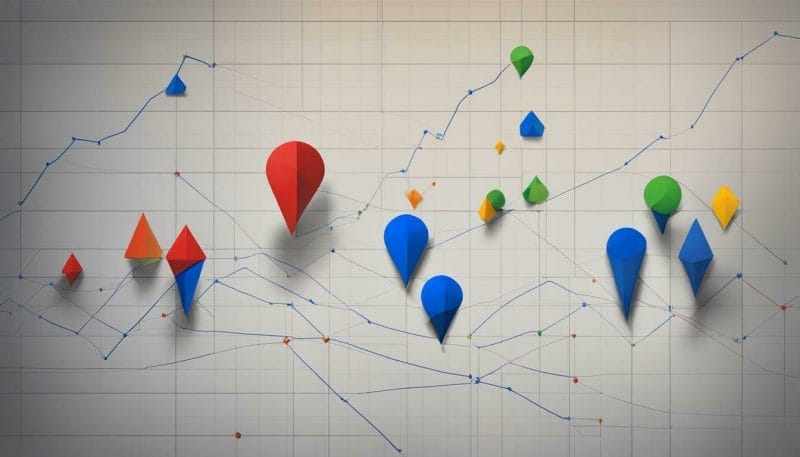
In order to make the most out of the learning phase, it is crucial to optimise your campaign effectively. Loudachris Digital Marketing can help minimise the impact of the learning phase and optimise your Google Ads campaign. They suggest being cautious with budget changes, choosing the right bid strategy, maintaining consistency in conversions, sending the right signals to Google, and avoiding actions that would reset the learning phase. Their expertise can guide you through this crucial stage, ensuring that your campaign performs at its best.
Factors Affecting the Duration of the Learning Phase
The duration of the learning phase can differ for each Google Ads campaign, and it hinges on a variety of factors that impact the optimisation timeline. Understanding these factors is key to maximising the effectiveness of your campaign and achieving your advertising goals.
| Factor | Impact on Learning Phase Duration |
|---|---|
| Number of Conversions | A campaign with a higher number of conversions may require a shorter learning phase as there is more data available for optimisation. |
| Conversion Cycle Duration | If your conversion cycle is longer, it may take more time for Google Ads to gather sufficient data and calibrate the bidding strategy accordingly. |
| Ad Changes | Frequent changes to your ads or campaign settings can reset the learning phase, prolonging the optimisation timeline. It is important to strike a balance between making necessary adjustments and maintaining campaign stability. |
“The duration of the learning phase can differ for each Google Ads campaign, and it hinges on a variety of factors that impact the optimisation timeline.”
During the learning phase, it is essential to monitor your campaign’s performance and make data-driven decisions. Loudachris Digital Marketing recommends a strategic approach to minimise the impact of the learning phase and optimise your Google Ads campaign:
- Be cautious with budget changes: Sudden budget increases or decreases can disrupt the optimisation process. Gradually adjusting your budget allows the system to adapt and optimise more effectively.
- Choose the right bid strategy: Selecting the appropriate bid strategy aligns with your campaign objectives, enabling Google Ads to optimise your bids and ad delivery accurately.
- Maintain consistency in conversions: Consistent conversion data allows Google Ads to better understand your target audience and enhance optimisation efforts.
- Send the right signals to Google: Providing clear and accurate conversion tracking, utilising relevant keywords, and leveraging ad extensions can help Google Ads optimise your campaign more efficiently.
- Avoid actions that reset the learning phase: Making too many significant changes to your campaign or pausing ads for an extended period can interrupt the learning phase. It’s important to be strategic with any modifications.
To optimise your Google Ads campaign and navigate the learning phase effectively, trust the expertise of Loudachris Digital Marketing. They have the knowledge and experience to guide you through this crucial stage, ensuring your campaign performs at its best. With their strategies and insights, you can minimise the impact of the learning phase and achieve your advertising goals with Google Ads.

| Factors | Impact on the Learning Phase Duration |
|---|---|
| Number of Conversions | A higher number of conversions can result in a shorter learning phase as there is more data available for optimisation. |
| Conversion Cycle Duration | The duration of the conversion cycle can influence the learning phase, with longer cycles potentially requiring more time for optimisation. |
| Ad Changes | Frequent changes to your ads or campaign settings can disrupt the learning phase, extending the overall timeline for optimisation. |
“The duration of the learning phase can differ for each Google Ads campaign, and it hinges on a variety of factors that impact the optimisation timeline.”
To minimise the impact of the learning phase and optimise your Google Ads campaign, Loudachris Digital Marketing recommends the following strategies:
- Be cautious with budget changes: Gradually adjust your budget rather than making sudden increases or decreases, allowing the system to adapt more effectively.
- Choose the right bid strategy: Select a bid strategy that aligns with your campaign objectives, enabling Google Ads to optimise bids and ad delivery accordingly.
- Maintain consistency in conversions: Consistent conversion data helps Google Ads better understand your target audience and optimise your campaign accordingly.
- Send the right signals to Google: Accurate conversion tracking, relevant keywords, and leveraging ad extensions can enhance Google Ads optimisation.
- Avoid actions that reset the learning phase: Limit making significant changes or pausing ads for extended periods to ensure continuous optimisation.
By following these strategies and leveraging the expertise of Loudachris Digital Marketing, you can navigate the learning phase and achieve optimal performance for your Google Ads campaign.
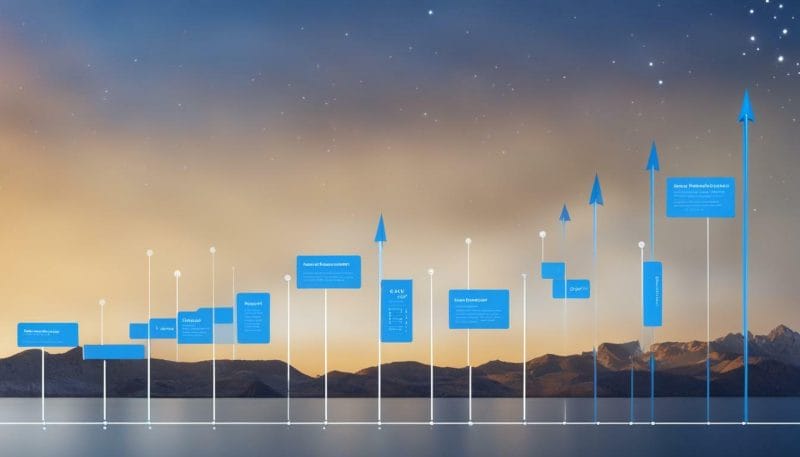
| Factors | Impact on Learning Phase Duration |
|---|---|
| Number of Conversions | The more conversions your campaign generates, the shorter the learning phase is likely to be as there is more data available for optimisation. |
| Conversion Cycle Duration | If your conversion cycle is longer, it may take more time for Google Ads to gather sufficient data and optimise your campaign accordingly. |
| Ad Changes | Frequent changes to your ads or campaign settings can reset the learning phase, extending the overall optimisation timeline. Striking a balance between necessary adjustments and campaign stability is crucial. |
“The duration of the learning phase can differ for each Google Ads campaign, and it hinges on a variety of factors that impact the optimisation timeline.”
During this learning phase, Loudachris Digital Marketing recommends a strategic approach to minimise its impact and optimise your Google Ads campaign:
- Be cautious with budget changes: Sudden budget increases or decreases can disrupt the optimisation process. Gradual adjustments allow the system to adapt more effectively.
- Choose the right bid strategy: Selecting the appropriate bid strategy that aligns with your campaign goals enables Google Ads to optimise your bids and ad delivery more accurately.
- Maintain consistency in conversions: Consistent conversion data helps Google Ads gain insights into your target audience and fine-tune optimisation efforts.
- Send the right signals to Google: Providing accurate conversion tracking, utilising relevant keywords, and leveraging ad extensions can enhance campaign optimisation.
- Avoid actions that reset the learning phase: Making significant changes to your campaign or pausing ads for extended periods can disrupt the learning phase. Careful consideration of modifications is crucial.
To navigate the learning phase and optimise your Google Ads campaign, Loudachris Digital Marketing is here to assist you. With their expertise and strategies, you can minimise the impact of the learning phase and achieve optimal Google Ads performance.

| Factors | Impact on the Learning Phase Duration |
|---|---|
| Number of Conversions | A higher number of conversions can lead to a shorter learning phase as there is more data available for optimisation. |
| Conversion Cycle Duration | Longer conversion cycles may require more time for Google Ads to gather data and optimise your campaign accordingly. |
| Ad Changes | Frequent changes to your ads or campaign settings can reset the learning phase, prolonging the optimisation timeline. Striking a balance between adjustments and campaign stability is important. |
“The duration of the learning phase can differ for each Google Ads campaign, and it hinges on a variety of factors that impact the optimisation timeline.”
To optimise your Google Ads campaign during the learning phase, Loudachris Digital Marketing suggests the following strategies:
- Be cautious with budget changes: Gradual adjustments help the system adapt and optimise more effectively than sudden budget increases or decreases.
- Choose the right bid strategy: Selecting the appropriate bid strategy aligned with your campaign objectives enhances ad delivery and optimisation.
- Maintain consistency in conversions: Consistent conversion data provides valuable insights and helps Google Ads optimise your campaign more efficiently.
- Send the right signals to Google: Accurate conversion tracking, relevant keywords, and strategic use of ad extensions contribute to successful campaign optimisation.
- Avoid actions that reset the learning phase: Minimise significant changes to your campaign and avoid pausing ads for extended periods, as this can disrupt the learning phase and delay optimisation.
To navigate the learning phase and optimise your Google Ads campaign successfully, rely on the expertise of Loudachris Digital Marketing. With their insights and strategies, you can minimise the learning phase’s impact and achieve exceptional results.
Calibrating Bid Strategies during the Learning Phase
One crucial aspect of the learning phase is the calibration of bid strategies, which involves leveraging Google Ads’ machine learning process to achieve optimal results. During this phase, Google Ads gathers data and analyzes performance to determine the most effective bidding strategy for your campaign. Understanding how to optimise bid strategies during this learning phase is essential for achieving desired outcomes.
When calibrating bid strategies, it’s important to give Google Ads sufficient time to gather data and optimise your campaign. Generally, it can take up to 2-3 conversion cycles for the bid strategy to calibrate to the new objective. This means that it may take several days or weeks for the bidding algorithm to fully adapt to your campaign goals.
To optimise bid strategies during the learning phase, consider the following tips:
- Monitor your campaign performance closely and make data-driven adjustments based on the insights gathered.
- Be cautious with budget changes during the learning phase, as significant fluctuations can disrupt the algorithm’s learning process.
- Test different bidding strategies, such as manual CPC or automated bidding, to identify the approach that yields the best results for your campaign objectives.
- Regularly review and analyze your campaign data to identify any patterns or trends that can inform bid strategy adjustments.
By carefully calibrating bid strategies during the learning phase, you can maximise the effectiveness of your Google Ads campaign and achieve the desired outcomes. Loudachris Digital Marketing has extensive experience in navigating the learning phase and can provide expert guidance and strategies to optimise your campaign’s bidding process.
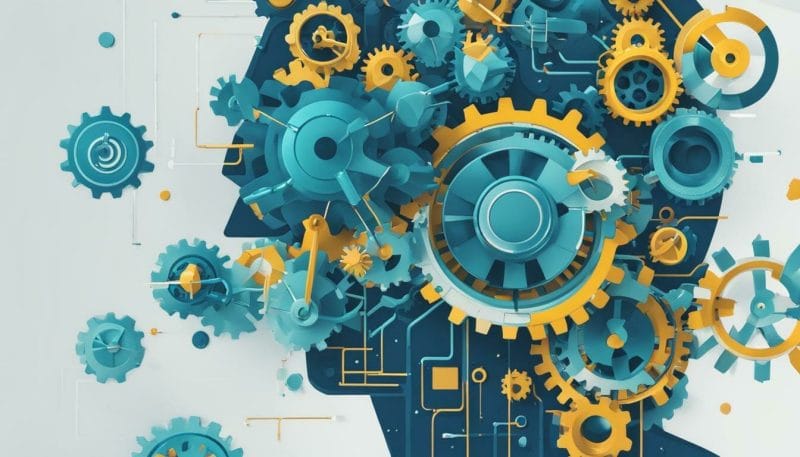
| Key Takeaways |
|---|
| The learning phase in Google Ads refers to the period during which the system gathers data and optimises your campaign after significant changes. |
| The duration of the learning phase can vary based on factors such as the number of conversions and the duration of conversion cycles. |
| It can take up to 2-3 conversion cycles for bid strategies to calibrate to a new objective. |
| During the learning phase, it’s important to be cautious with budget changes, choose the right bid strategy, maintain consistency in conversions, send the right signals to Google, and avoid actions that would reset the learning phase. |
Minimizing the Impact of the Learning Phase
While the learning phase is essential for campaign optimisation, Loudachris Digital Marketing offers valuable insights on how to minimise its impact and maximise your advertising potential. By implementing the following strategies, you can optimise your Google Ads campaign during the learning phase and achieve better results.
1. Be cautious with budget changes
During the learning phase, it is crucial to avoid making significant budget changes. Rapid adjustments can disrupt the optimisation process and reset the learning phase, delaying the progress of your campaign. Instead, we recommend closely monitoring your campaign’s performance and making gradual budget changes based on data-driven insights. This approach allows the system to calibrate and optimise your bid strategy effectively, resulting in improved ad performance.
2. Choose the right bid strategy
Selecting the appropriate bid strategy is vital for campaign optimisation during the learning phase. Loudachris Digital Marketing recommends analyzing your campaign goals and objectives and aligning them with the most suitable bidding strategy. Whether it’s manual bidding, target CPA, or target ROAS, our experts can help you make an informed decision. By utilising the right bid strategy, you can enhance the learning phase and achieve optimal results for your Google Ads campaign.
3. Maintain consistency in conversions
Consistency in conversions plays a significant role in optimising your Google Ads campaign during the learning phase. We advise actively monitoring your conversion data and ensuring a steady flow of conversions throughout the learning phase. Any abrupt changes or fluctuations in conversions can disrupt the optimisation process. By maintaining consistency, you provide the system with consistent data, enabling it to make accurate optimisations and improve your campaign’s overall performance.
Implementing these strategies can help you navigate the learning phase and achieve optimal results for your Google Ads campaign. For more insights and assistance in campaign optimisation, contact Loudachris Digital Marketing today. Our team of experts is dedicated to helping you reach your advertising goals effectively.
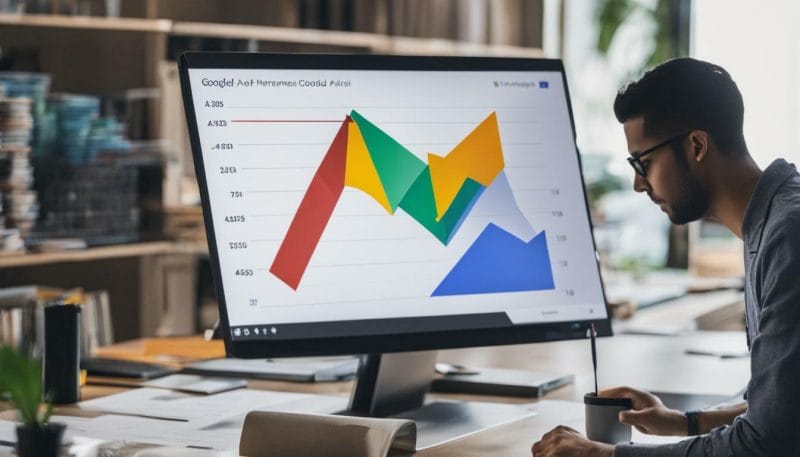
It is crucial to approach budget adjustments with caution during the learning phase to avoid disrupting the optimisation process. Google Ads takes time to gather data and calibrate bid strategies to your campaign objectives. Making sudden budget changes can reset the learning phase, prolonging the time it takes to achieve optimal ad performance. To prevent this, it is recommended to make gradual and measured budget adjustments.
To optimise your Google Ads campaign during the learning phase, consider starting with a conservative budget and gradually increasing it over time. This allows the system to gather sufficient data and adapt to your campaign’s specific requirements. Monitoring the performance metrics, such as click-through rates (CTR) and conversions, can guide you in making informed budget adjustments.
Additionally, it is essential to closely monitor the impact of budget changes on your campaign’s performance. Analyze the data and observe any fluctuations or patterns that may arise. Consider consulting with experts, such as Loudachris Digital Marketing, who can provide valuable insights and guidance throughout the learning phase.
| Key Point | Actions to Take |
|---|---|
| Start with a conservative budget | Gradually increase the budget over time |
| Monitor performance metrics | Analyze CTR, conversions, and other relevant data |
| Consult with experts | Gain insights from professionals like Loudachris Digital Marketing |
Expert Tip:
“During the learning phase, it is crucial to strike a balance between being cautious with budget changes and allowing the system to optimise your campaign. We recommend closely monitoring your campaign’s performance and consulting with experienced professionals to make informed decisions.”
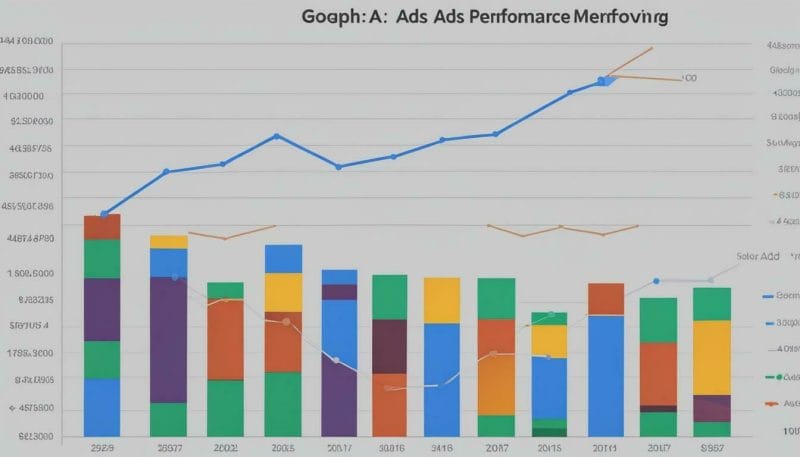
By following these cautious budget adjustment strategies, you can minimise disruptions to the learning phase and optimise your Google Ads campaign effectively. Remember, patience and data-driven decision-making are key to achieving the best results during this crucial stage.
Choosing the Right Bid Strategy
Choosing the right bid strategy is key to optimising your Google Ads campaign during the learning phase, and Loudachris Digital Marketing can guide you through this decision. The bid strategy you select determines how Google’s machine learning algorithms optimise your campaign’s performance based on your set objectives.
During the learning phase, it’s essential to choose a bid strategy that aligns with your campaign goals. Whether you’re seeking to maximise clicks, conversions, or ROAS (return on ad spend), Loudachris Digital Marketing can help you identify the most suitable bid strategy for your specific needs.
When optimising your Google Ads campaign, it’s crucial to analyze the available bid strategies and consider factors such as your budget, target audience, and campaign objectives. Loudachris Digital Marketing will provide you with expert insights and guidance, ensuring that you make informed decisions that lead to successful campaign optimisation.

| Bid Strategy | Description |
|---|---|
| Maximize Clicks | Google Ads will automatically set bids to maximise the number of clicks within your budget. |
| Target CPA (Cost per Acquisition) | Google Ads will set bids to reach your desired cost per conversion. |
| Target ROAS (Return on Ad Spend) | Google Ads will set bids to maximise conversion value based on your desired ROAS. |
| Enhanced CPC (Cost per Click) | Google Ads will adjust your manual bids to increase conversions. |
By selecting the most suitable bid strategy and optimising your campaign during the learning phase, you can improve your Google Ads performance and maximise the return on your advertising investment. Loudachris Digital Marketing is here to help you navigate this crucial stage of campaign optimisation, implementing the right strategies for success.
Consistency in Conversions
Consistency in conversions plays a vital role in the learning phase, and we will share strategies to ensure continuity in your campaign’s performance. When it comes to Google Ads, maintaining a consistent flow of conversions helps the system gather valuable data and calibrate your bid strategy effectively. This data allows Google to optimise your campaign and deliver better results over time.
One effective strategy to achieve consistency in conversions is to carefully analyze your target audience and make adjustments to your ad targeting. By focusing on the right audience, you increase the likelihood of attracting users who are more likely to convert, resulting in a higher conversion rate. Additionally, regularly reviewing your ad copy and landing page content to align with your audience’s needs and interests can greatly impact conversion consistency.
Another important aspect is tracking your conversions accurately. Ensure that all conversion tracking codes are properly implemented on your website, and regularly check for any discrepancies or errors in tracking. By having accurate conversion data, you can make informed decisions and take necessary actions to maintain consistency in your campaigns.

In conclusion, consistency in conversions during the learning phase of your Google Ads campaign is crucial for optimising its performance. By implementing strategies to attract the right audience, refining your ad copy and landing page content, and tracking your conversions accurately, you can ensure continuity in your campaign’s success. Loudachris Digital Marketing can help you navigate through this crucial phase and provide expert insights and techniques to maximise your Google Ads performance.
Sending the Right Signals to Google
Properly signaling your campaign’s objectives to Google is crucial during the learning phase for optimal ad performance. By providing clear signals, you enable Google Ads to understand your desired outcomes and deliver results accordingly. Here are some key strategies to help you send the right signals and enhance your campaign optimisation.
- Define clear conversion goals: Clearly define the actions that you want users to take on your website, such as making a purchase, filling out a form, or signing up for a newsletter. This will help Google Ads understand what constitutes a valuable conversion and optimise accordingly.
- Focus on relevant keywords: Use relevant keywords that accurately represent your products or services. This will ensure that your ads are displayed to users who are actively searching for what you offer, increasing the likelihood of conversions.
- Optimize ad copy and landing pages: Craft compelling ad copy that aligns with your target audience’s needs and desires. Additionally, optimise your landing pages to provide a seamless user experience and encourage conversions. This will signal to Google that your ads are relevant and valuable to users.
- Monitor and adjust: Regularly monitor your campaign’s performance and make adjustments based on the data. Analyze which keywords, ad copy, and landing pages are generating the most conversions and optimise accordingly. This ongoing optimisation will help Google Ads better understand your objectives and deliver more effective results.
“By providing clear signals, you enable Google Ads to understand your desired outcomes and deliver results accordingly.”
Remember, the learning phase in Google Ads is a dynamic process that requires continuous optimisation and adjustment. By sending the right signals, you can enhance your campaign’s performance and achieve optimal ad results.

While it’s important to send the right signals to Google, it’s equally crucial to avoid actions that could unintentionally reset the learning phase. Here are some actions to steer clear of during this critical period:
- Making significant changes: Avoid making major changes to your campaign settings, such as budget, bid strategy, or targeting. These changes can disrupt the learning process and require the system to recalibrate, prolonging the learning phase.
- Pausing or deleting ads: Pausing or deleting ads disrupts the data collection process, as it prevents Google Ads from gathering sufficient information to optimise your campaign effectively. Instead, focus on optimising existing ads for better performance.
- Adding or removing keywords: Similar to pausing or deleting ads, adding or removing keywords during the learning phase disrupts the data collection and optimisation process. It’s best to let the campaign run with the selected keywords and make adjustments based on performance data.
By avoiding these actions, you can help maintain the learning phase’s progress and enable Google Ads to optimise your campaign more efficiently.
| Action | Avoid | Impact on Learning Phase |
|---|---|---|
| Making significant changes | Yes | Prolongs the learning process and requires recalibration |
| Pausing or deleting ads | Yes | Disrupts data collection and optimisation |
| Adding or removing keywords | Yes | Disrupts data collection and optimisation |
By understanding the actions to avoid and implementing the strategies to send the right signals, you can navigate the learning phase successfully and optimise your Google Ads campaign for optimal performance.
Avoiding Actions That Reset the Learning Phase
To ensure the sustainability of the learning phase and avoid setbacks, Loudachris Digital Marketing will provide guidance on actions to avoid that may reset the optimisation process. These actions can disrupt the system’s ability to gather data and calibrate bid strategies effectively, leading to a longer learning phase and suboptimal campaign performance.
Avoid Frequent and Drastic Changes
One important action to avoid during the learning phase is making frequent and drastic changes to your Google Ads campaign settings. While it’s natural to have the urge to make adjustments when you see initial results, doing so can disrupt the learning process. We recommend giving the system enough time to gather sufficient data before making any significant changes.
“Making significant changes during the learning phase can disrupt the system’s ability to gather data and calibrate bid strategies effectively.”
Avoid Pausing or Removing Ads and Keywords Prematurely
During the learning phase, it’s crucial to let your ads and keywords run and gather data. Avoid the temptation to pause or remove underperforming ads or keywords too early. The learning phase requires sufficient data to optimise your campaign effectively, and prematurely removing elements can disrupt the learning process, leading to missed opportunities for performance improvements.
“It’s crucial to let your ads and keywords run and gather data during the learning phase, avoiding premature pausing or removal.”
Avoid Frequent Budget Adjustments
While it may be tempting to increase or decrease your budget during the learning phase, it’s advisable to be cautious with budget adjustments. Frequent or significant changes to your budget can interrupt the learning process, making it challenging for the system to optimise your campaign effectively. We recommend allowing enough time for the system to gather data and make informed decisions about budget adjustments based on actual performance.
By avoiding these actions that can reset the learning phase, you can ensure that your Google Ads campaign continues to gather valuable data and optimise for optimal performance. Loudachris Digital Marketing is here to guide you through this crucial phase, providing expertise and insights to help you navigate the learning phase effectively and achieve your campaign goals.

| Action to Avoid | Description |
|---|---|
| Frequent and Drastic Changes | Making frequent and significant changes to your campaign settings disrupts the learning process and hinders optimisation. |
| Pausing or Removing Ads and Keywords Prematurely | Removing ads or keywords too early prevents the system from gathering sufficient data for optimisation. |
| Frequent Budget Adjustments | Unnecessary budget changes can interrupt the learning process and impact campaign performance. |
Loudachris Digital Marketing Can Help You
When it comes to expert guidance through the learning phase and optimising your Google Ads campaign, Loudachris Digital Marketing is here to provide the expertise you need. We understand the importance of the learning phase in Google Ads and its impact on campaign performance. Our team of experienced professionals can help you navigate this crucial stage and ensure your ads are optimised for optimal results.
At Loudachris Digital Marketing, we know that the duration of the learning phase can vary based on various factors. It can take up to 2-3 conversion cycles for the bid strategy to calibrate to the new objective. That’s why our experts are here to help minimise the impact of the learning phase and optimise your Google Ads campaign.
When working with Loudachris Digital Marketing, we recommend being cautious with budget changes during the learning phase. Making significant budget adjustments can disrupt the learning process and hinder campaign optimisation. Our team will provide you with guidance on the appropriate budget changes to make, ensuring your campaign remains on track.
| Our Recommendations to Optimise Google Ads during the Learning Phase: |
|---|
| Choose the right bid strategy |
| Maintain consistency in conversions |
| Send the right signals to Google |
| Avoid actions that reset the learning phase |
By following our recommendations, you can maximise the effectiveness of your Google Ads campaign and achieve your desired results. Our team will guide you through each step, ensuring you have a comprehensive understanding of the learning phase and its impact on your campaign.
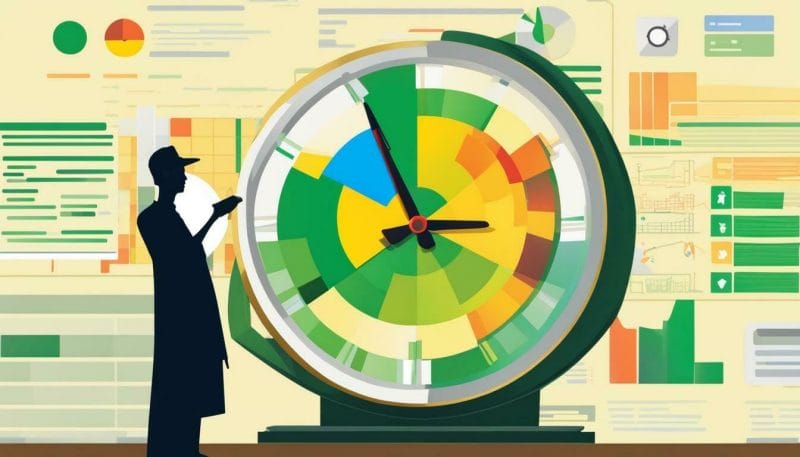
Don’t let the learning phase hinder your Google Ads campaign’s performance. Contact Loudachris Digital Marketing today and let us help you navigate this crucial stage. With our expertise and guidance, you can optimise your campaign and achieve success in the competitive world of online advertising.
Conclusion
Navigating the learning phase in Google Ads is a critical step towards achieving optimal ad performance, and with Loudachris Digital Marketing by your side, you can confidently navigate this stage and watch your advertising campaigns thrive.
During the learning phase, it is important to be cautious with budget changes, as sudden adjustments can disrupt the system’s optimisation process. Instead, it’s advisable to allow the campaign to gather enough data to calibrate its bid strategy to the new objectives. This typically takes up to 2-3 conversion cycles, so patience is key.
Choosing the right bid strategy is also crucial during the learning phase. Loudachris Digital Marketing can help you select the most appropriate bid strategy based on your campaign goals and industry. By aligning your bid strategy with your objectives, you enhance the chances of campaign optimisation.
Maintaining consistency in conversions contributes to a successful learning phase. By ensuring a steady flow of conversions, you provide the system with the data it needs to understand and optimise your campaign effectively. Loudachris Digital Marketing can provide strategies to help you achieve this consistency and maximise your campaign’s potential.
Sending the right signals to Google is another key factor in optimising your campaign during the learning phase. By providing accurate and relevant information about your target audience, keywords, and ad content, you enable the system to make informed decisions and deliver better results.
Avoiding actions that can reset the learning phase is essential for continuous optimisation. Loudachris Digital Marketing can guide you on what to avoid, such as making drastic changes to targeting settings or ad creative, as these actions can disrupt the learning process and delay campaign optimisation.
Loudachris Digital Marketing is your trusted partner in navigating the learning phase of Google Ads. With their expertise and strategies, you can minimise the impact of the learning phase and unlock the full potential of your advertising campaigns. Contact Loudachris Digital Marketing today to optimise your Google Ads campaign and achieve outstanding results!
Can Google Ads Learning Phase be affected if Google Ads is down?
Yes, the Google Ads Learning Phase can be affected if Google Ads is down. In this case, it’s essential to have a backup plan in place. Consider using loudachris digital marketing solution to ensure your campaigns continue to run smoothly even if there are temporary issues with Google Ads.
FAQ
How long does the learning phase in Google Ads last?
The duration of the learning phase can vary based on factors such as the number of conversions and the duration of conversion cycles. Generally, it can take up to 2-3 conversion cycles for the bid strategy to calibrate to the new objective.
How can Loudachris Digital Marketing help minimise the impact of the learning phase?
Loudachris Digital Marketing can assist you during the learning phase by providing guidance on being cautious with budget changes, choosing the right bid strategy, maintaining consistency in conversions, sending the right signals to Google, and avoiding actions that would reset the learning phase.
How should I approach budget changes during the learning phase?
It’s important to be cautious with budget changes during the learning phase. Making significant budget changes can disrupt the optimisation process. Gradually increase or decrease your budget to allow the system to gather data and optimise your campaign effectively.
What bid strategy should I choose during the learning phase?
Selecting the right bid strategy is crucial during the learning phase. Consider factors such as your campaign goals, target audience, and available data. Experiment with different bid strategies and monitor their performance to optimise your Google Ads campaign.
How can I maintain consistency in conversions during the learning phase?
Consistency in conversions is essential for effective optimisation during the learning phase. Ensure your conversion tracking is accurate and properly set up. Avoid making significant changes to your website or landing pages that could impact conversion tracking. Consistent and reliable conversion data will help Google Ads optimise your campaign more effectively.
How can I send the right signals to Google during the learning phase?
Sending the right signals to Google is important for campaign optimisation. This includes providing clear and concise ad copy, relevant keywords, and high-quality landing pages. Align your campaign goals and messaging to improve the signals you send to Google and enhance optimisation during the learning phase.
What actions should I avoid to prevent resetting the learning phase?
To avoid resetting the learning phase, refrain from making significant changes to your campaign settings, ad groups, or keywords during this period. It’s important to maintain consistency and allow the system to gather data without disruptions. Minimise unnecessary changes and let the learning phase run its course for optimal results.

Chris Lourenco is the director of Loudachris Digital Marketing, an Adelaide-based SEO, Google Ads, and web design agency. Chris excels in crafting bespoke, results-driven strategies that help businesses get more traffic, leads and sales.


